-
01
Sep 2025
Tips & Facts for a Road Trip through Andalusia
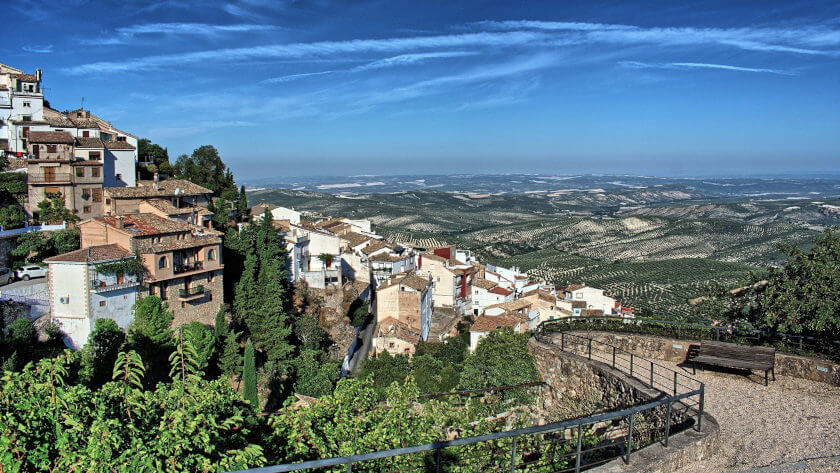
This blog takes you through the eight provinces of Andalusia, with for each province: cultural highlights, landscapes, must-sees & must-dos, tips for food and drink, and special overnight stays (with booking links where possible).
Think of it as a first introduction to the eight Andalusian provinces — a journey through the lands of Almería, Granada, Málaga, Cádiz, Huelva, Sevilla, Córdoba and Jaén. Each so close together, yet each so different. Andalusia is a large autonomous region with an area of 87,268 km² — about twice the size of the Netherlands — with 8 provinces and over 8.5 million inhabitants. A region full of contrasts.
In the 18 years we have been coming here, the last 9 of which we have lived here permanently, we have truly visited 7 of the 8 provinces, once or several times, and we still want to keep coming back for more ;-) Only Almería remains on our list for a first visit.
An overview of all provinces, highlights, must-dos, and some general tips.
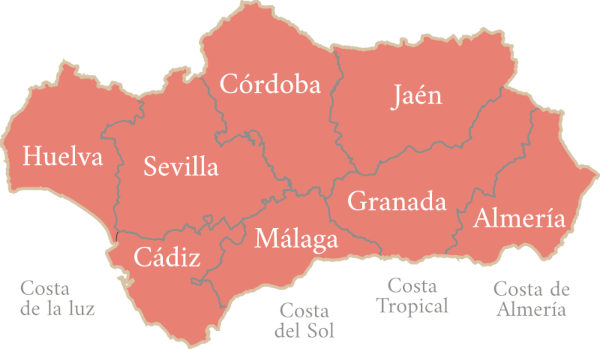
Almería
The province of Almería is rugged, arid, and surprisingly varied. The Cabo de Gata-Níjar Natural Park offers unspoiled beaches, volcanic rock formations, and crystal-clear waters — a paradise for hikers and snorkelers. The city of Almería itself has a Moorish fortress, the Alcazaba, and a lively harbour full of tapas bars. Outside the city, you’ll find the Tabernas Desert, where classic spaghetti westerns were filmed, and charming coastal villages like Agua Amarga and San José.
Area: 8,774 km² | Population: approx. 727,000
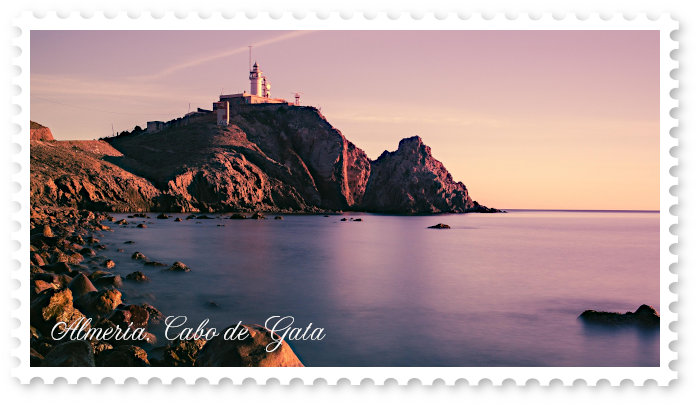
Cultural highlights:
* Alcazaba of Almería
* Historic centre & Cathedral
Extra highlight outside the capital:
* Mojácar/Vera, tour to Playa de los Muertos and Carboneras and
* San José: Cabo de Gata Natural Park Kayak and Snorkel Tour
Landscape
* Cabo de Gata-Níjar (volcanic coasts)
* Tabernas Desert (film scenery)
Must-see´s & must-do´s
* Beaches: Los Genoveses, Mónsul
* Drive along the lighthouse route
* Visit western film sets in Tabernas
Food & drinks
* Taberna Bar Casa Puga – tapas
* La Mala – Mediterranean croqueteria, several locations
Special stays
* La Almendra y El Gitano – Agua Amarga, Cabo de Gata
* Hotel Doña Pakyta – San José
Info
* Almería Tourism: https://www.turismodealmeria.org/en/
Annual festivals
* Feria de Almería (August)
![]()
Granada
Granada is a province full of contrasts: from the snow-capped peaks of the Sierra Nevada to the subtropical beaches of the Costa Tropical. The capital, Granada, enchants visitors with the world-famous Alhambra and the atmospheric Albaicín district. In the Alpujarra, with its whitewashed mountain villages and terraced hillsides, you’ll find an authentic and peaceful Andalusia. Further north lies the Guadix region, known for its unique cave dwellings.
Area: 12,646 km² | Population: approx. 921,000
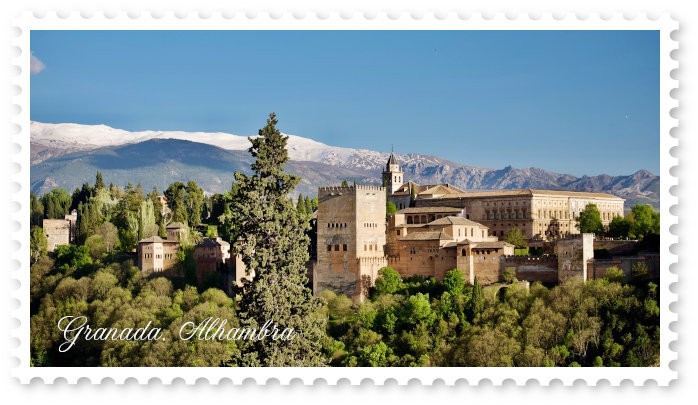
Cultural highlights
* Alhambra & Generalife
* Albaicín & Mirador de San Nicolás
* Sacromonte (flamenco in caves)
Extra highlight outside the capital:* Trevélez – the highest village in the Alpujarra, famous for its ham-making tradition.
Landscape
* Sierra Nevada (mountains, major ski area)
* De Alpujarra (white villages)
Must-see´s & must-do´s
* The Alhambra (note: book tickets well in advance)
* Tapas tour around Plaza Nueva
* Day trip through the Alpujarra (Capileira, Pampaneira)
Food & drinks
* Mirador de Morayma – fine dining with stunning views of the Alhambra
* Bodegas Castañeda – famous tapas and wines from Granada
* Carmela Restaurante – modern Andalusian cuisine, family-owned group with five restaurants in the heart of Granada
Special stays
* Palacio de Santa Inés – two Mudejar-style buildings in the Nasrid quarter of Albayzín, UNESCO World Heritage
* Hotel Casa 1800 Granada – historic, just minutes from the Alhambra
* Hostal Rodri – in the historic and commercial centre, 200 metres from the Cathedral and Royal Chapel
Info
* Granada Tourism: https://www.turgranada.es/en/
Annual festivals
* Festival Internacional de Música y Danza (June/July)
* Corpus Christi (May/June)
![]()
Málaga
Málaga effortlessly combines art, culture, and coast. The vibrant capital boasts museums such as the Picasso Museum, a historic centre, and the Moorish Alcazaba. Outside the city lies the bustling Costa del Sol with long beaches and fishing districts like El Palo and Pedregalejo. Inland, you’ll find the picturesque white villages of the Axarquía, the spectacular Caminito del Rey gorge walk, and the impressive mountain ranges of the Sierras de Tejeda, Almijara, and Alhama.
Area: 7,308 km² | Population: approx. 1,700,000
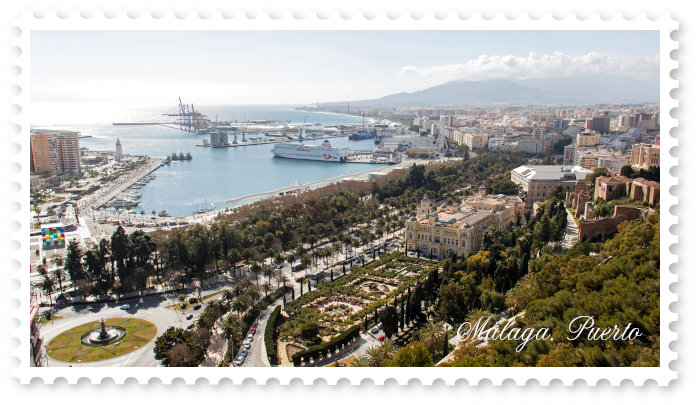
Cultural highlights
* Alcazaba & Castillo de Gibralfaro
* Cathedral “La Manquita”
* Museums: Museo Picasso, Carmen Thyssen, Pompidou Málaga
Extra highlight outside the capital:
* Nerja – Balcón de Europa & caves and
* Canillas de Aceituno, El saltillo walk
Landscape
* Montes de Málaga
* El Torcal & Ardales lakes
* Beaches: El Palo & Pedregalejo
* Sierras de Tejeda, Almijara y Alhama
Must-see´s & must-do´s
* Stroll through the historic centre
* Beach day in El Palo (espeto sardines)
* Day trip to Antequera & El Torcal
Food & drinks
* El Pimpi – bodega with Malagueño history and culture
* La Tranca – tapas bar and gallery
* Mercado de Atarazanas – market & tapas (https://www.malagaturismo.com)
* Plaza de la Merced
Special stays
* Room Mate Valeria – design in the city centre
* Casa de las Mercedes – charming, close to Atarazanas market
Info
* Málaga Tourism: https://visita.malaga.eu/en/
* Antequera Tourism: https://turismo.antequera.es/en/
Annual festivals
* Feria de Málaga (16–23 August 2026)
* Semana Santa (29 March – 5 April 2026)
* Málaga Carnival (7–15 February 2025)
![]()
Cádiz
Cádiz breathes the sea and history. The capital of the same name is one of the oldest cities in Europe, surrounded by golden beaches and a lively promenade. Also visit Tarifa, the southernmost point of mainland Europe, where the Mediterranean Sea meets the Atlantic Ocean. Inland, you’ll find white villages like Vejer de la Frontera, and in Jerez de la Frontera, you can taste world-famous sherry and see the Royal Andalusian School of Equestrian Art.
Area: 7,385 km² | Population: approx. 1,245,000
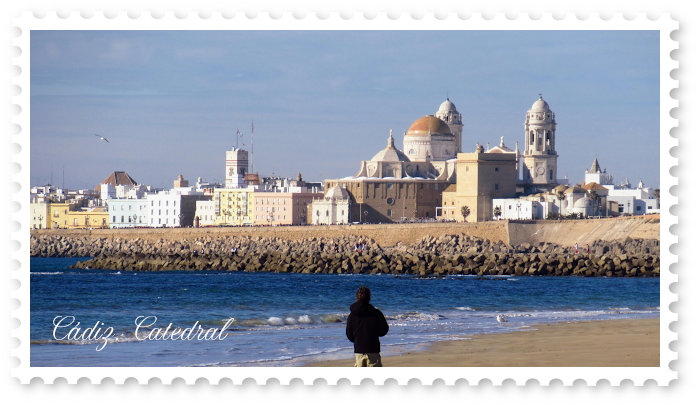
Cultural highlights
* Cádiz Cathedral
* Teatro Falla (carnival)
Extra highlight outside the capital:
* Zahara de los Atunes – beach & tuna tradition and
* Jerez de la Frontera: Andalusian Horse Dance and Museums
Landscape
* Atlantic beaches (La Caleta, Bolonia)
* White villages (Vejer, Medina-Sidonia)
Must-see´s & must-do´s
* Wind & surf in Tarifa
* Roman ruins of Baelo Claudia (Bolonia)
* Sunset at La Caleta
Food & drinks
* Casa Manteca – tapas and atmosphere
* Restaurante El Campero – almadraba red tuna
Special stays
* La Casa del Califa – in Vejer
* Hotel Misiana – Tarifa
* Hotel Soha Boutique Cádiz – Cádiz
Info
* Cádiz Tourism: https://www.cadizturismo.com/en
Annual festivals
* Carnaval de Cádiz (February)
![]()
Huelva
Huelva is a province of unspoiled nature and maritime history. Doñana National Park is one of Europe’s most important wetlands and a paradise for birdwatchers. The capital, Huelva, has strong ties to Columbus, who prepared his voyages of discovery here. Along the coast are quiet beaches like those of Punta Umbría, while inland, the white village of El Rocío is famous for its annual pilgrimage.
Area: 10,128 km² | Population: approx. 525,000
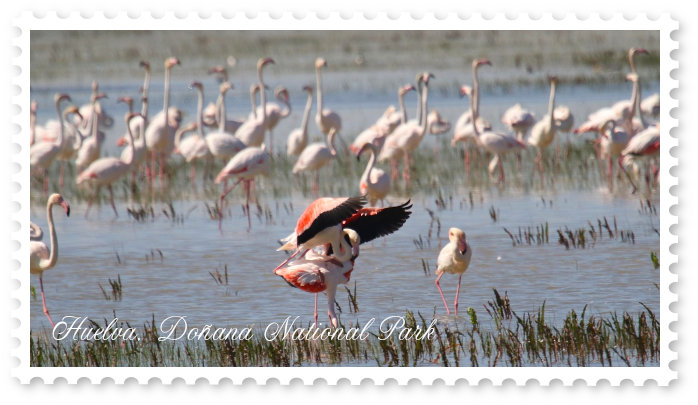
Cultural highlights
* Moguer & Palos (Columbus history)
* El Rocío (pilgrimage village)
* Minas de Riotinto – “Mars landscape”
Landscape
* Doñana National Park (marshes & dunes)
* Beaches at Mazagón & Punta Umbría
Must-see´s & must-do´s
* 4x4 excursion in Doñana
* Visit El Rocío outside pilgrimage time
* Taste Iberian ham in the Sierra de Aracena
Food & drinks
* Azabache Huelva – regional cuisine at a high level
* Pura Huelva – gourmet, typical Huelva dishes
Special stays
* Parador de Mazagó
* Parador de Mazagón – in Moguer, Doñana National Park
* Hotel La Malvasía – in pilgrimage village El Rocío
Info
* Doñana info & visits: https://www.donana.es
Annual festivals
* Romería de El Rocío (Pentecost)
![]()
Sevilla
Sevilla is the vibrant heart of Andalusia. The province offers vast plains, orange groves, and charming towns, with the capital Sevilla itself as the highlight — rich in monuments, flamenco, and culinary traditions. Outside the city lies Carmona, with Roman city walls and a beautiful old centre, and the Sierra Norte de Sevilla Natural Park with hiking trails and picturesque villages.
Area: 14,036 km² | Population: approx. 1,950,000
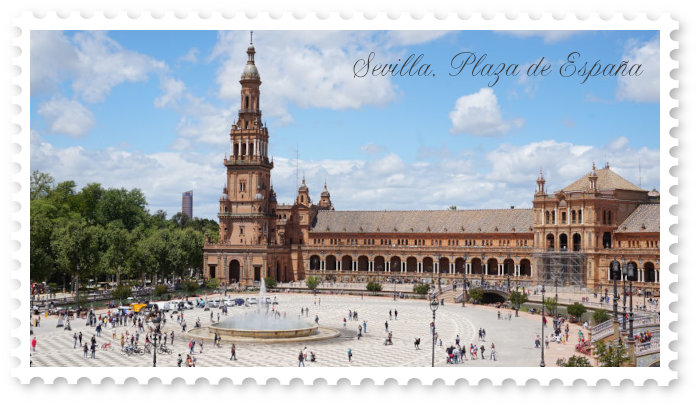
Cultural highlights in and around the capital
* Real Alcázar & gardens
* Cathedral & Giralda
* Barrio Santa Cruz & Jewish quarter
* Triana (flamenco & ceramics)
Extra highlight outside the capital:
* Itálica – Roman ruins in Santiponce with amphitheatre.
Landscape
* Guadalquivir riverbanks and bridges
* María Luisa Park & Plaza de España
Must-see´s & must-do´s
* Visit a flamenco tablao (e.g., in Triana)
* Walk through Santa Cruz and climb the Giralda
* Cycle tour along the Guadalquivir
Food & drinks
* El Rinconcillo – traditional tapas
* La Azotea – modern tapas and fine dining
* Mercado de Triana – daily market & fresh tapas
Special stays
* Hotel Casa 1800 Sevilla – boutique hotel in Santa Cruz
* Corral del Rey – small-scale luxury hotel
Info
* Santa Cruz walking tour: https://www.sevilla-nu.nl/wandelingen/9080-wandeling-joodse-wijk-en-santa-cruz.html
* Flamenco tips: https://spanishsabores.com/2016/09/19/the-best-places-to-see-flamenco-in-seville/
Annual festivals
* Semana Santa (29 March – 5 April 2026)
* Feria de Abril (21–26 April 2026)
![]()
Córdoba
Córdoba is steeped in history and tradition. From the Roman bridge to the Islamic Mezquita, the capital is a melting pot of cultures. In May, the courtyards burst into bloom during the famous Patio Festival. Outside Córdoba, you’ll find the mountain villages of the Sierra de Hornachuelos, perfect for nature walks, and the Montilla-Moriles wine region, known for its fortified wines.
Area: 13,769 km² | Population: approx. 780,000
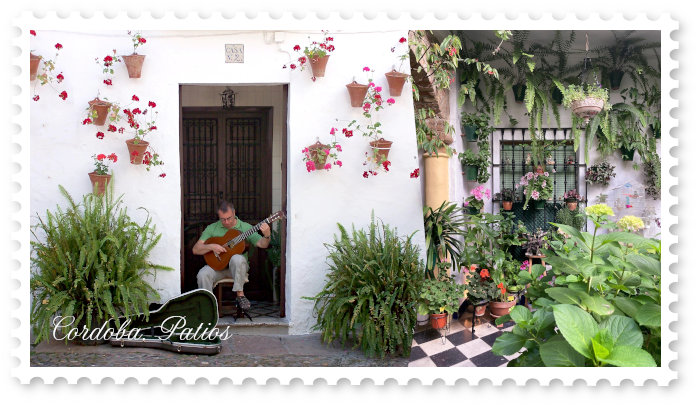
Cultural highlights
* La Mezquita (Mosque-Cathedral)
* Jewish Quarter & Synagogue
* Alcázar de los Reyes Cristianos
Extra highlight outside the capital:
* Medina Azahara – UNESCO archaeological site.
Landscape
* Río Guadalquivir & Roman bridge
* Flower-filled patios (May)
Must-see´s & must-do´s
* Visit the Mezquita (early morning recommended)
* Patio route in May
* Tea house in the Jewish Quarter
Food & drinks
* Bodegas Campos – classic restaurant with authentic elements
* Taberna Salinas – local favourite
* Mercado Victoria – food hall
Special stays
* Las Casas de la Judería – elegant patio hotel
* Hotel Viento10 – charming hotel with spa
Info
* Córdoba Tourism: https://english.turismodecordoba.org
Annual festivals
* Festival de los Patios (May)
* Cata del Vino Montilla-Moriles (Spring)
![]()
Jaén
Jaén is called the green heart of Andalusia thanks to millions of olive trees covering its landscape. The province boasts numerous castles and natural parks. The capital, Jaén, has an impressive Renaissance cathedral and the Arab baths, Baños Árabes. Outside the city, Úbeda and Baeza — both UNESCO World Heritage Sites — are known for their exceptional Renaissance architecture. The Sierras de Cazorla, Segura y Las Villas offer breathtaking nature.
Area: 13,496 km² | Population: approx. 616,000
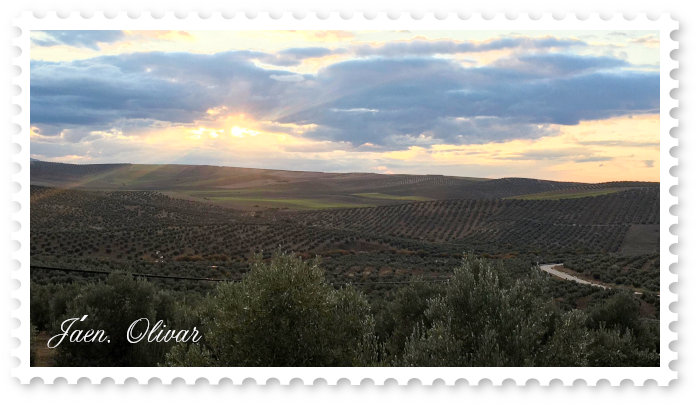
Cultural highlights
* Jaén Cathedral
* Renaissance cities of Úbeda & Baeza (UNESCO)
* Castillo de Alcaudete
Landscape
* Sierra de Cazorla, Segura y Las Villas
* Vast olive groves
Must-see´s & must-do´s
* Santa Catalina Castle (viewpoint)
* Hiking in Cazorla
* Olive oil tasting at an almazara
Food & drinks
* Restaurante Bagá – Michelin quality
* Taberna Casa Domingo – unique tapas
Special stays
* Parador de Jaén – in the centre of Jaén
* Hotel Xauen – also in the centre
* Hostal Santa María – Úbeda
Info
* Jaén Tourism: https://www.jaenparaisointerior.es/en
Annual festivals
* Fiestas de San Lucas (October)



